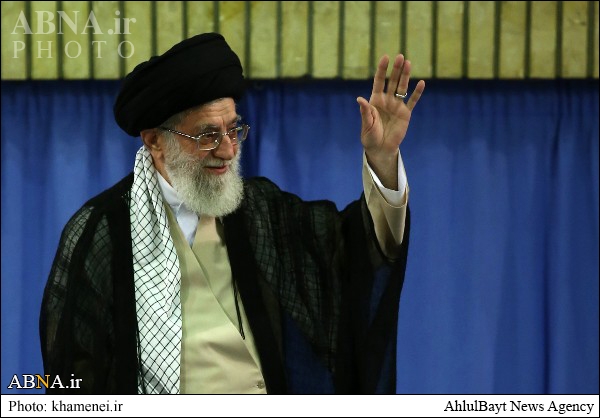The great significance of keeping up the rapid pace of the country's scientific movement is due to the fact that it is a main factor in shaping up both Iran's future fate and that of the Islamic world, Ayatollah Khamenei said in a meeting with hundreds of Iranian university professors and elites in Tehran on Wednesday.
"After many years of making emphasis on the need for serious scientific work, the country's scientific movement has achieved great objectives and is even recognized at international scenes, enabling us to say that it has been globally unveiled," he added.
He expressed serious concern that such a successful, prestigious, and beneficial movement that is the fruit of several years of serious endeavors of the selfless Iranian scientists, technicians and thinkers would God forbid, in its half-way to full success, be slowed down, or halted.
"Any type of pause, or slowing down in the accelerating trend of the country's scientific engine will also lead to its recession," said the leader.
Ayatollah Khamenei said that if this scientific movement and the Iranian scientistsˈ endeavor for conquering new peaks of scientific success would be halted or slowed down then putting it back on the rail of progress would be very difficult, and therefore, everyone must contribute full-scale to the country's scientific progress.
In recent years, Iranian scientists and experts have taken wide leaps in scientific, medical and technological fields but this has angered certain world powers.
Washington and its western allies accuse Iran of trying to develop nuclear weapons under the cover of a civilian nuclear program, while they have never presented any corroborative evidence to substantiate their allegations. Iran denies the charges and insists that its nuclear program is for peaceful purposes only.
Tehran stresses that the country has always pursued a civilian path to provide power to the growing number of Iranian population, whose fossil fuel would eventually run dry.
Despite the rules enshrined in the Non-Proliferation Treaty (NPT) entitling every member state, including Iran, to the right of uranium enrichment, Tehran is now under four rounds of UN Security Council sanctions for turning down West's calls to give up its right of uranium enrichment.
Tehran has dismissed west's demands as politically tainted and illogical, stressing that sanctions and pressures merely consolidate Iranians' national resolve to continue the path.
The Islamic Republic says that it considers its nuclear case closed as it has come clean of International Atomic Energy Agency (IAEA)'s questions and suspicions about its past nuclear activities.
On November 24, Iran and the five permanent United Nations Security Council members- the US, Russia, France, China, and Britain- plus Germany sealed a six-month accord to lay the groundwork for the full resolution of the West’s decade-old dispute with Iran over its nuclear energy program.
In exchange for Tehran’s confidence-building bid to limit certain aspects of its nuclear activities, the Sextet of world powers agreed to lift some of the existing sanctions against Tehran.
The six round of talks between the two sides are now underway in Vienna to reach a final deal before the July 20 deadline.
/149

